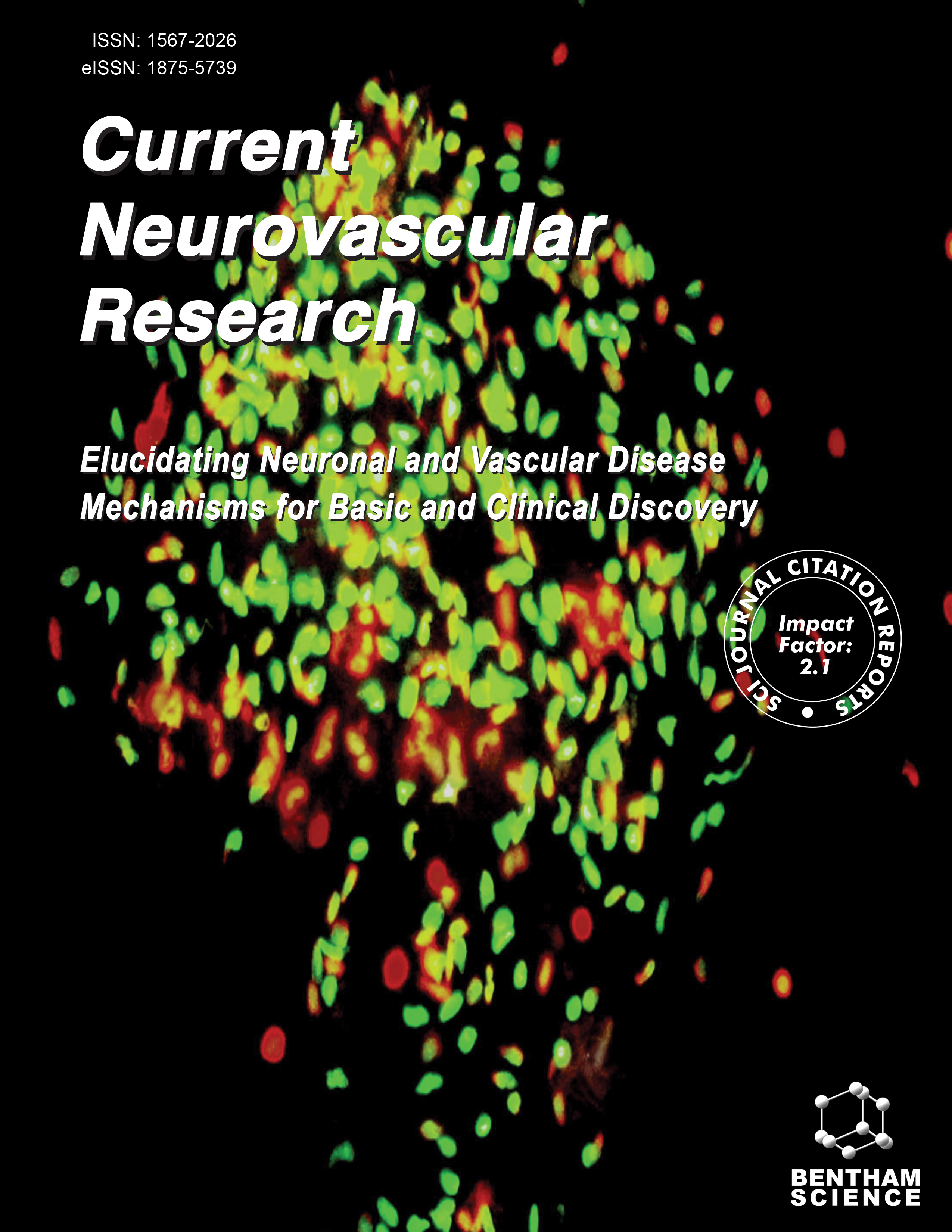-
s Curcumin Reduces Neuronal Loss and Inhibits the NLRP3 Inflammasome Activation in an Epileptic Rat Model
- Source: Current Neurovascular Research, Volume 15, Issue 3, Aug 2018, p. 186 - 192
-
- 01 Aug 2018
Abstract
Background: Epilepsy is a chronic neurological disorder affecting an estimated 50 million people worldwide. Emerging evidences have accumulated over the past decades supporting the role of inflammation in the pathogenesis of epilepsy. Curcumin is a nature-derived active molecule demonstrating anti-inflammation efficacy. However, its effects on epilepsy and corresponding mechanisms remain elusive. Objective: To investigate the effects of curcumin on epilepsy and its underlying mechanism. Method: Forty Sprague Dawley rats were divided into four groups: (1) control group; (2) Kainic Acid (KA)-induced epilepsy group; (3) curcumin group; and (4) curcumin pretreatment before KA stimulation group. Morris water maze was utilized to assess the effect of curcumin on KA-induced epilepsy. The hippocampi were obtained from rats and subjected to western blot. Immunohistochemistry was conducted to investigate the underlying mechanisms. Results: Rats received curcumin demonstrated improvement of recognition deficiency and epilepsy syndromes induced by KA. Western blot showed that KA stimulation increased the expression of IL-1β and NLRP3, which were reduced by curcumin treatment. Further investigations revealed that curcumin inhibited the activation of NLPR3/inflammasome in epilepsy and reduced neuronal loss in hippocampus. Conclusion: Curcumin inhibits KA-induced epileptic syndromes via suppression of NLRP3 inflammasome activation; therefore, offers a potential therapy for epilepsy.


